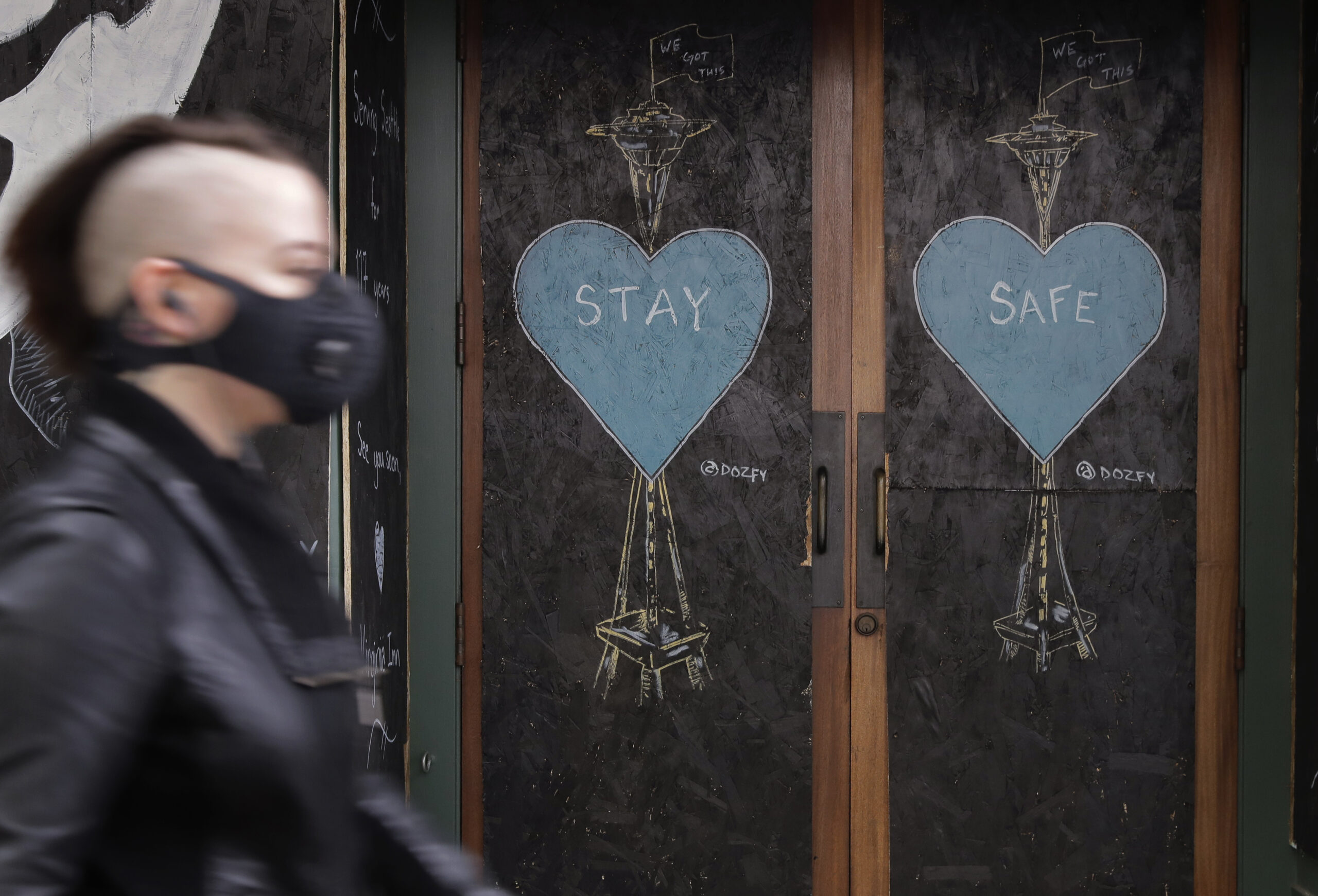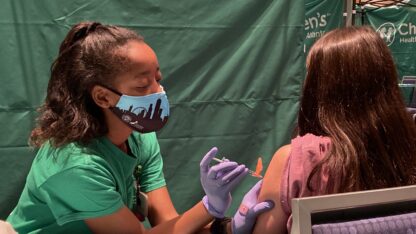During the current emergency, many people have lost their jobs, their businesses, their health insurance. Some have avoided the worst so far but are nevertheless in financial trouble. And some people are simply worried about themselves — or a loved one — getting a potentially deadly disease. It’s no surprise there’s so much anxiety among Americans.
A recent survey by the Boston University School of Public Health and Sharecare, an Atlanta-based digital health company, found 9 in 10 Americans are affected by feelings of worry about COVID-19, and 1 in 5 report severe levels of stress and anxiety.
The survey results show considerable financial stress, with 65 percent of national respondents indicating worry about their retirement funds and 22 percent saying they are “very worried” that the United States will enter an extended recession. The survey had a national sample size of 114,022 people, with more than 5,000 respondents from Georgia.
Although a degree of anxiety is natural at times like this, it’s a sign of trouble to let these fears and worries dominate your daily life. An individual in such a situation may need help, mental health experts say.
The pandemic has worsened problems for people who were already suffering with anxiety and has led some people to experience significant anxiety for the first time, according to Dr. Stephen Fleming, a psychiatrist with Georgia Behavioral Health Professionals, who practices primarily in Athens.
“What might trigger that spike for some people, and it’s related to just the intense stress that they’re under, just from worries about their own health, worries about the health of family members, worries about dealing with the stress of being quarantined,” he said. “Fears of what it does to their income and their ability to meet basic needs for themselves and their families.”
For some, it goes a lot further than fear of infection. Big changes in routines, such as setting up a home office, or working from home while trying to home-school one’s children, can trigger overwhelming anxiety.
“The one key feature of what we are all dealing with is uncertainty,” Fleming said, and anxiety is a natural reaction to it.
“It’s still natural to have that response to a really worldwide event that’s as significant as what we’re living through right now,” he said.
Powerful Fears
Everybody feels some anxiety, said Chris Mayo, a licensed clinical social worker at the Georgia Center for OCD and Anxiety. “An anxiety disorder is when anxiety really starts to take over someone’s life and be really, really disruptive.”
He described people who suffer with this disorder as being so preoccupied with fear that it starts to control their lives.
“They lose their sense of precaution, and they will keep taking precautions and doing something until they feel better,’’ Mayo said.
An example of this is people developing obsessive habits, such as constantly washing their hands, to make the fear go away.
The COVID-19 crisis could have a detrimental effect on some people already struggling with anxiety, Mayo said, because they see other people’s reactions to the crisis as a sign of how they should react themselves.
“Kind of like when there’s turbulence on an airplane, people instantly look at the faces of the flight attendants to give them the signal of whether they should be afraid,” he said. “Because if the flight attendants are nervous, then I’m going to be nervous, but if they’re calm, then I can be calm.”
Those with anxiety disorders can take this tendency to an extreme. Mayo said such an individual who goes shopping may overreact to seeing people wearing masks and taking other precautions. The person may misinterpret these sensible measures as a signal to start panicking.
The Unknown
Glenn has been living with anxiety for almost half his life. Now 33, he first noticed the symptoms while he was in high school, although he did not start treatment until he was 19.
He recalls that after he got the proper medication and found a mental health provider he was comfortable with, his anxiety declined to what he considered a tolerable level. Although it got worse again after his home in the Athens area sustained damage, he was working on remodeling the home and controlling his anxiety.
Then COVID-19 hit.
“It’s just the unknown and the fear, it’s like today, my face is a little flushed and hot feeling, but I checked my temperature before I called you and it was 97.8,” said Glenn, who requested that his full name not be used.
While he is practicing all the safety precautions that he can during the pandemic, that doesn’t stop his anxiety.
He’s currently living with his mother, and potential dangers to her — such as illness and hospitalization — are among his worst fears. The possibility that something might happen to her health, he said, is “the most horrible, anxious thought.”
When it comes to avoiding the coronavirus, “I know that I’m doing what I can,” he said, but “one of the most anxious things to me about it is what if I bring it home?”
His efforts to practice safety precautions, such as disinfecting his surroundings, have created yet another sphere of worry. For example, he worries that by wiping down his car’s steering wheel and the doorknobs in the house, he is actually causing damage that will require repairs.
Along with anxiety, Glenn also suffers with chronic conditions, such as sleep apnea and high blood pressure. These play into his anxieties.
He used to take weekly trips into Atlanta to see his friends, something he is not able to do while practicing social distancing.
“It’s like I don’t want them to go through that trouble. The interstates are dangerous from people speeding due to them not being crowded,” he said. “So there’s an example of my anxiety, just worrying about other people when they still want to try and make the connection.”
“Yeah, COVID has definitely screwed everything up,” he said.
Seek help if you need it
Nadine Kaslow, a professor of psychiatry and behavioral sciences at Emory University School of Medicine, has seen people with worsening anxiety problems recently, as well as some with first-time anxiety problems.
“There is no question that there is a group of people who had a history of anxiety problems, and maybe their anxiety was under control, or maybe their anxiety wasn’t under control but they are having a worsening of their symptoms,” she said. “There’s another group of people that actually have never had an anxiety disorder before and they are starting to have anxiety problems for the first time in their life, unfortunately.”
She describes public fears about being infected with COVID-19 as a collective trauma, with individuals afraid not only for themselves but for their loved ones.
There are ways to help, Kaslow emphasizes.
“Set aside time each day for stress management, for doing various kinds of self-care, exercising, breathing, meditation, using apps, journaling, prayer, doing mindfulness,” Kaslow said. She also recommends staying in the present (not speculating too much about the future) and trying not to overwhelm yourself with news and social media.
Continued support and communication are also good, Kaslow said. And when people communicate, she added, they should avoid making COVID-19 the subject of every conversation. It is important to keep things in perspective, to remember that there is more to life than the pandemic and the disruptions it is causing.
Of course, if you aren’t able to control your feelings of panic, worry or being overwhelmed, it’s time to seek professional help, she and others say.
“I think what’s really important to convey is that a certain amount of anxiety is normal and it’s understandable,” said Kaslow. “People need to be compassionate towards themselves about it. This is a time for a lot of compassion toward yourself and compassion toward other people.”
Naomi Thomas is a freelance journalist based in Athens with a focus on health journalism.









